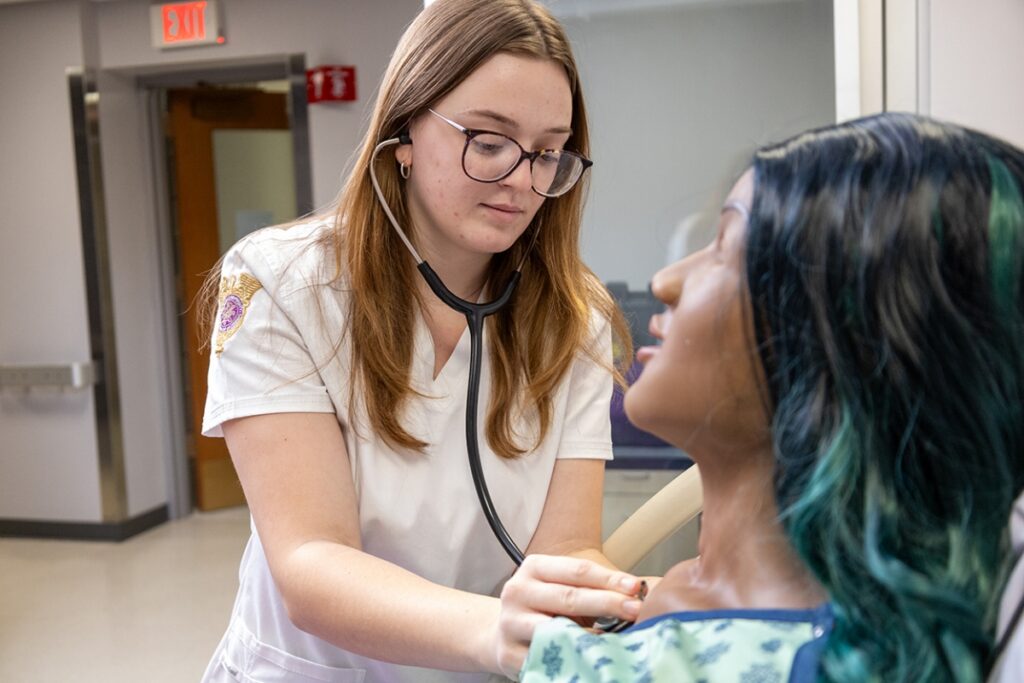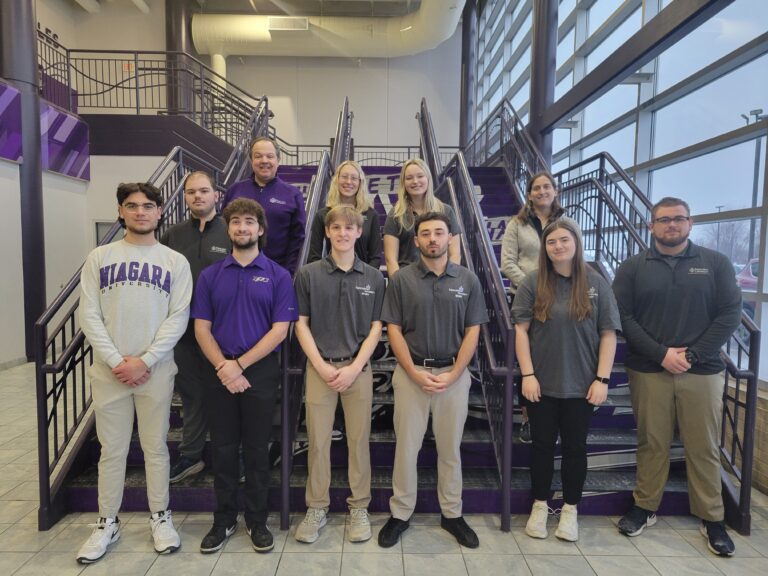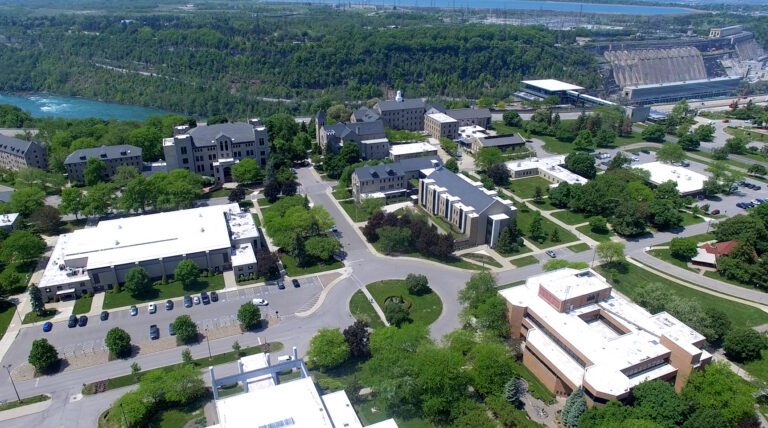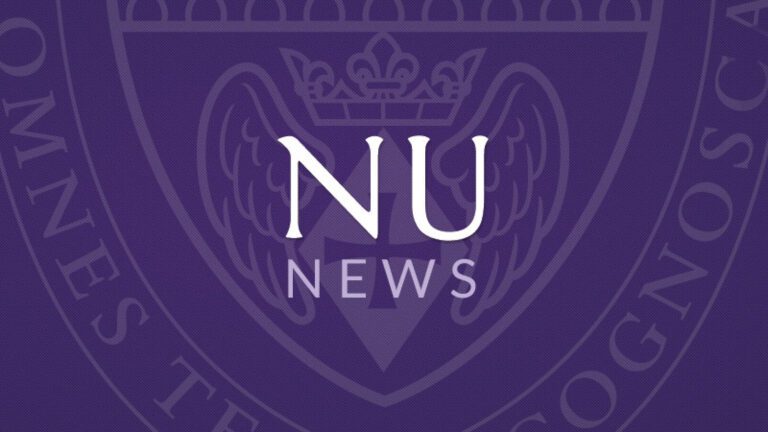Niagara University has received a $100,000 grant from the Mother Cabrini Health Foundation to continue the work done by its College of Nursing to foster nurse resilience, effectively bridge the transition from student to healthcare professional, address a critical shortage in the nursing workforce, increase awareness of health inequities, and develop effective approaches to care in complex environments across Western New York, with an emphasis on Niagara County.
This is the third consecutive year the college has received support from the organization for its “Practice Innovations to Support a Resilient, Inclusive & Equitable Nurse Workforce” initiative. The renewed funding will be used to expand the academic preparation of students and improve the quality of care across the lifespan, particularly for the most complex and vulnerable patients in healthcare settings, by the increased use of virtual reality, telemedicine training, and other patient-care simulation educational experiences and game-training in its state-of-the-art Nursing Simulation Center and skills lab. These on-campus clinical experiences will enable students to develop sound critical thinking and clinical judgment skills.
The grant will also support the work of the college’s resilience and resource officer, who will build resilience for student and novice nurses working in complex and stressful healthcare settings and upskill nurse leaders who interact with these vulnerable clinicians to decrease turnover and departure from the nursing profession while improving personal wellness, retention, and job satisfaction.
“Proper self-care practices are crucial for nurses in reducing their stress, renewing their ability to provide compassion and empathy, and improving the quality of care,” said Dr. Christine Verni, dean of the college. “Our resilience and resource officer promotes well-being by further developing critical thinking skills that make nurses more resilient when presented with stressors in the workplace, classroom, and/or clinical settings as they transition from the structured educational setting to a hospital or other clinical environment.”
Professional development opportunities will also be offered to nursing students, recent graduates, and other healthcare workers, particularly those early in their career and/or those in leadership positions.
The project builds upon the work started in 2022 with funding from the Cabrini Foundation to enhance technology in the College of Nursing’s simulation and skills labs, develop expanded certifications to create new pathways to the nursing and allied health professions, and facilitate high-impact training for community health instructors.
“Addressing New York’s immediate and long-term health needs requires a comprehensive approach. Over the past five years, we have provided funding across the state to communities struggling with heightened health inequities. While responding to urgent needs, we’ve also focused on building strong community relationships, funding long-term infrastructure, and pursuing community input so that our grantmaking efforts are as impactful and sustainable as possible for underserved communities both today and for years to come,” said Msgr. Gregory Mustaciuolo, chief executive officer of the Mother Cabrini Health Foundation.
Niagara’s College of Nursing offers a four-year bachelor of science degree and an accelerated B.S. in nursing, both of which are accredited by the Commission on Collegiate Nursing Education. It also will begin offering a master’s degree in family nurse practitioner this fall.
The college has long standing relationships with regional healthcare partners, including Niagara Falls Memorial Medical Center, Catholic Health, and Kaleida Health, who train students and hire graduates into nursing roles upon program completion.





